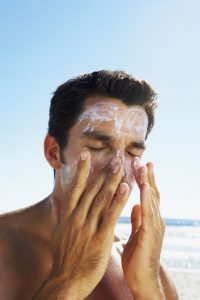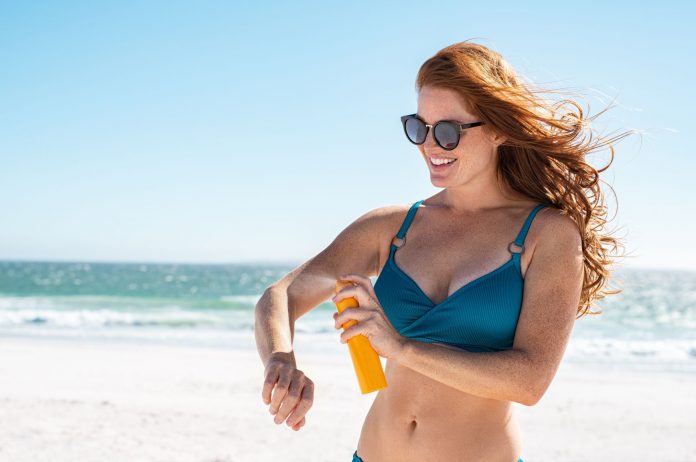Skin specialists are urging people to heed the sun safety advice of experts, not ill-informed social media feeds that have the potential to harm vulnerable Queenslanders.
Dermatologists like Associate Professor Erin McMeniman say false claims about sunscreen have no place in a state like Queensland, which has the highest rate of melanoma in the world.
“There are a lot of myths about sunscreen being shared and some of them are dangerous,” said Assoc Prof McMeniman, who works at Princess Alexandra Hospital and UQ School of Medicine.
“A lot of them are being shared widely on social media and unfortunately, a lot of people seem to believe them. This is particularly the case when it’s a celebrity spreading the misinformation.
“It’s irresponsible because it can cause long-term harm to impressionable people who won’t question their qualifications, credibility or motives.
Do you have an opinion to share? Submit a Letter to the Editor with your name and suburb at Sunshine Coast News via: news@sunshinecoastnews.com.au
“We need to make it clear that sunscreen protects your skin from sun dangerous ultraviolent rays and can help prevent skin cancer, including life-threatening melanoma. That’s backed by science.
“We urge everyone to make applying sunscreen a part of their daily routine. Additionally, people can protect their skin by seeking shade, wearing sun-safe clothing, a broad-brimmed hat and sunglasses.
“The lifetime risk for melanoma for Queenslanders is one in 15 – that’s approximately two children in every class at school.”
False claims perpetuated in posts and comments on social media include:
- Myth #1: It’s safe to not use sun protection outside
- Myth #2: Darker skin does not burn
- Myth #3: A tan prevents sunburn or people who tan easily do not get skin cancer
- Myth #4: Chemicals from sunscreen are more dangerous than UV rays
- Myth #5: Sun protection causes Vitamin D deficiencies
- Myth #6: Sunscreen causes cancer
- Myth #7: You don’t need sunscreen when it’s overcast
- Myth #8: Sunscreen causes coral bleaching.
Queensland Health data shows more than 32,000 people are hospitalised in Queensland each year because of skin cancers, including 3,500 for melanoma.
Sunscreen works by reflecting or absorbing the sun’s ultraviolet rays. This prevents sunburn and other damage to skin cells.
Skin cancer researcher and head of QIMR Berghofer’s Cancer Aetiology and Prevention group, Professor Rachel Neale, said research showed that daily sunscreen application reduced the risk of melanoma, other types of skin cancer, and skin spots.

“Melanoma takes the lives of approximately 1500 Australians every year, and the hundreds of thousands of skin cancer treatments that occur every year have an enormous societal cost,” she said.
“Economic analyses show that prevention is much better than cure, and sunscreen is one of the mainstays of skin cancer prevention.”
Professor Neale, who has been conducting one of the largest studies to date on vitamin D and its health benefits, has also dismissed a common argument against sunscreen use.
“Current evidence suggests that regular sunscreen use does not lead to vitamin D deficiency,” she said.
“Sunscreens do let some of the sun’s ultraviolet rays through – they are a screen and not a shield. The amount of sun needed to reach the skin to make vitamin D is lower than a lot of people think.
Do you have an opinion to share? Submit a Letter to the Editor with your name and suburb at Sunshine Coast News via: news@sunshinecoastnews.com.au
“Vitamin D deficiency is not a common problem in Queensland. Only about 11 per cent of Queenslanders were considered deficient in the Australian National Health Survey and, of this 11 per cent, almost all had mild deficiency. In contrast, we have the highest rates of skin cancer in the world.
“This suggests that, in Queensland at least, the benefits of sunscreen use outweigh the negatives.”
Assoc Prof McMeniman said some people may experience a reaction to sunscreen.
“Usually they will get a skin rash or redness, because they’re sensitive or allergic to the ingredients,” she said.
“In these cases, an appropriately qualified specialist like a dermatologist can provide product advice and recommend a sunscreen designed specifically for sensitive skin.”





